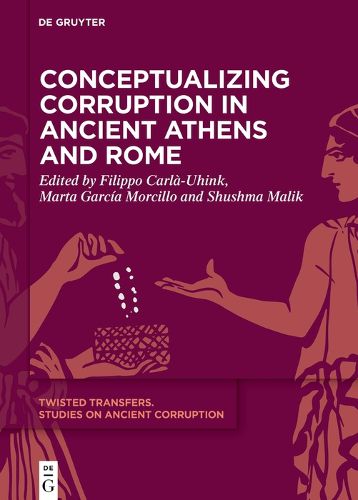Readings Newsletter
Become a Readings Member to make your shopping experience even easier.
Sign in or sign up for free!
You’re not far away from qualifying for FREE standard shipping within Australia
You’ve qualified for FREE standard shipping within Australia
The cart is loading…






Corruption is a process of degeneration activated or revealed by activities defined as illegal, immoral or deviant. Political corruption specifically defines forms of misbehavior damaging the community, as embezzlement; yet, it is impossible to disentangle from moral corruption, as the relationship between individual corruption and that of the entire community can take different forms in public opinion and discourse. The picture becomes even more blurred when considering corruption in ancient Athens and Rome. This is due to the scarcity and the general one-sidedness of ancient sources, as to modern narratives that tend to idealize those societies and to identify specific phases, such as the Late Republic or the Late Roman Empire, as moments of "decadence" and of widespread corruption.
The volume explores a variety of approaches to the study of corruption in ancient Athens and Rome, focusing on how corruption (and anti-corruption) were conceptualized, discussed and represented. Such analysis is relevant for today's discussions about corruption, too, in particular by demonstrating how discourses of corruption interface with democratic ideology (as in Athens) and with electoral practices (as in Republican Rome).
$9.00 standard shipping within Australia
FREE standard shipping within Australia for orders over $100.00
Express & International shipping calculated at checkout
Corruption is a process of degeneration activated or revealed by activities defined as illegal, immoral or deviant. Political corruption specifically defines forms of misbehavior damaging the community, as embezzlement; yet, it is impossible to disentangle from moral corruption, as the relationship between individual corruption and that of the entire community can take different forms in public opinion and discourse. The picture becomes even more blurred when considering corruption in ancient Athens and Rome. This is due to the scarcity and the general one-sidedness of ancient sources, as to modern narratives that tend to idealize those societies and to identify specific phases, such as the Late Republic or the Late Roman Empire, as moments of "decadence" and of widespread corruption.
The volume explores a variety of approaches to the study of corruption in ancient Athens and Rome, focusing on how corruption (and anti-corruption) were conceptualized, discussed and represented. Such analysis is relevant for today's discussions about corruption, too, in particular by demonstrating how discourses of corruption interface with democratic ideology (as in Athens) and with electoral practices (as in Republican Rome).